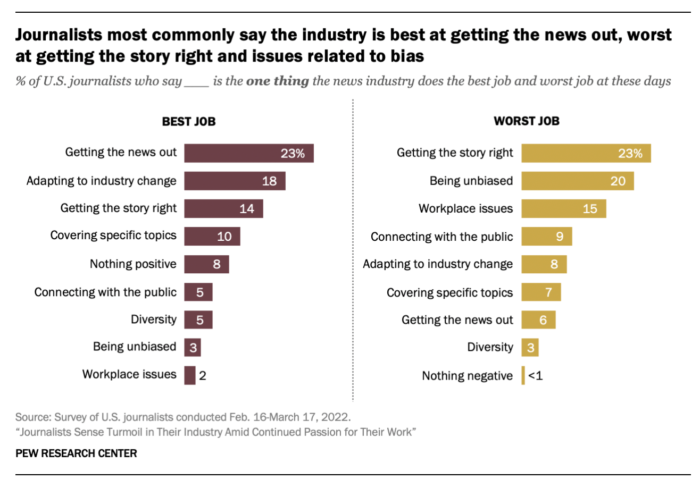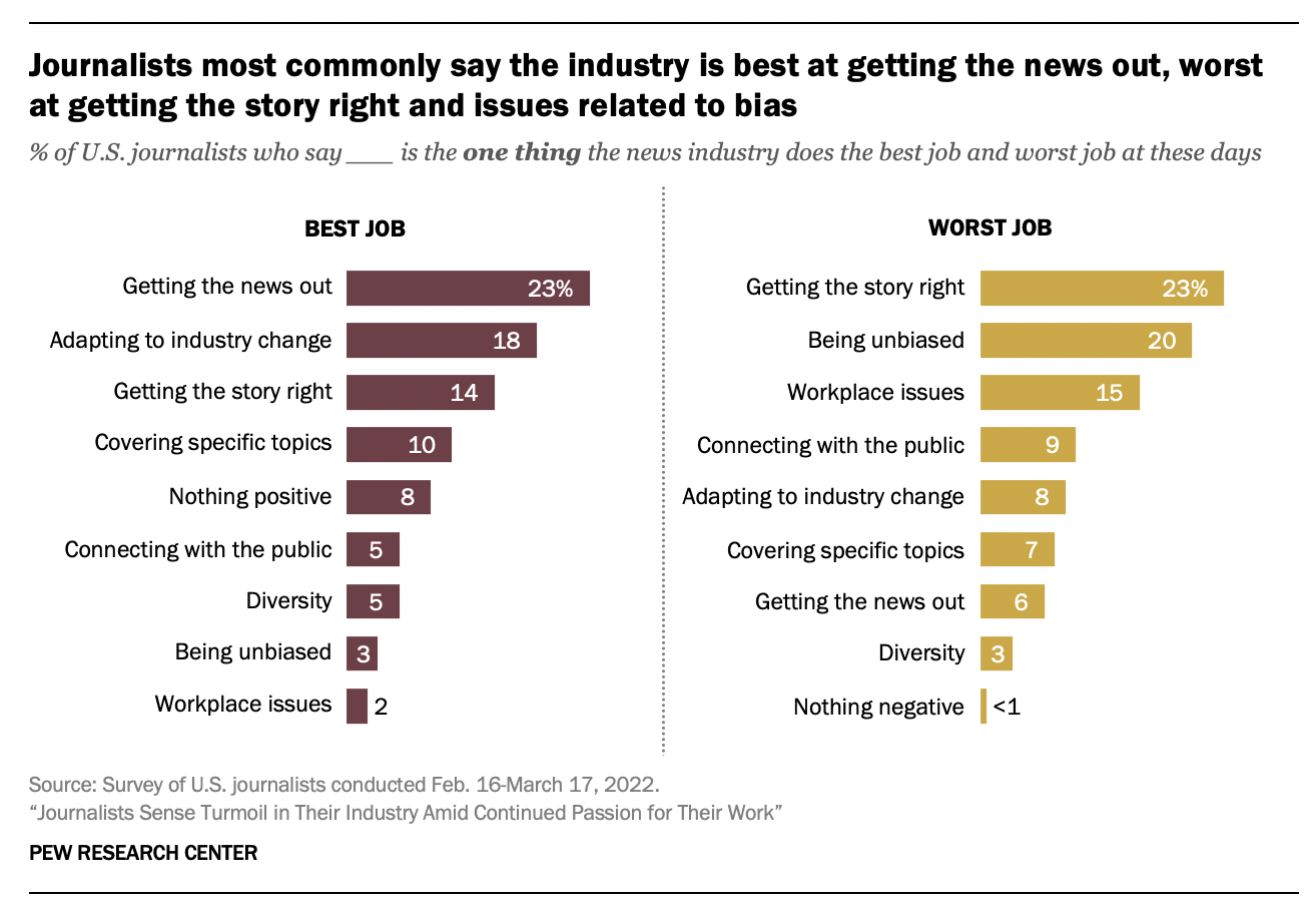
Nearly three-quarters (72%) of American journalists describe the state of the news industry negatively, according to a new study by the Pew Research Center.
In the study, released Tuesday, journalists were asked to describe the industry in one word. Forty-two percent of them used words like “struggling,” “chaos,” “dying,” “declining,” or “under-resourced.” Seventeen percent used neutral words like “changing,” while just 9% used positive words like “important.”

Pew surveyed nearly 12,000 journalists in the United States between February and March 2022. Of those respondents, 77% were white, 8% were Hispanic, 5% were Black, 3% were Asian, and a combined 6% identified as “other” or did not answer. Men and women made up 51% and 46% of the respondents, respectively, while 1% identified as “another gender identity.”
Despite more negative feelings about the industry, journalists felt more positive about their actual jobs. Over 70% said they were proud of their work and would pursue a journalism career again.
A surprising finding: Online journalists are the happiest journalists (followed by print!) https://t.co/U7aqCYCnJD pic.twitter.com/ll1NqlglUd
— Chris Suellentrop (@suellentrop) June 14, 2022
They also feel that the industry is doing a good job “adapting to industry change.” As for “getting the story right,” well, there’s disagreement — 14% of respondents said that “getting the story right” is the thing the industry does the “best job” at these days. But 23% of respondents said that “getting the story right” is the thing the industry is doing the worst job at.

Journalists said newsroom growth has been been relatively stagnant, with 46% saying their newsroom is “mostly staying the same,” while 22% reported their organizations were cutting back and 30% said their outlets were expanding. At the same time, 41% said their salaries had increased while 50% said theirs stayed the same. Seven percent said their salaries decreased.
The Center also conducted two separate surveys of its panel of American adults, during the same time period, in order to compare the differences between the ways that journalists and the public view the journalism industry. Turns out there are major discrepancies between the way the press views itself and the way the public views it.
Journalists and the public were asked about five journalism functions: Covering the most important stories of the day, reporting the news accurately, serving as a watchdog over elected leaders, giving voice to the underrepresented, and managing or correcting misinformation.
“In all five areas, journalists give far more positive assessments than the general public of the work news organizations are doing,” the report’s authors noted. “And on four of the five items, Americans on the whole are significantly more likely to say the news media is doing a bad job than a good job.”

For example, 71% of journalists said made-up news and information is “a very big problem for the country,” compared to 50% of U.S. adults who said the same. Meanwhile, 40% of journalists said that news organizations are generally doing a bad job of managing or correcting misinformation, but 51% of U.S. adults said the same.
The survey also looked at how journalists view diversity in the industry and their individual newsrooms. Sixty-seven percent said that their newsrooms have “enough” gender diversity, but only 32% said the same about racial and ethnic diversity. Less than half of respondents (42%) said their newsrooms make diversity a “major priority.”
 The way that journalists view their organizations’ progress varies based on demographics. Overall, white journalists and men were more likely to think that their organization treated everyone fairly regardless of gender, age, or race.
The way that journalists view their organizations’ progress varies based on demographics. Overall, white journalists and men were more likely to think that their organization treated everyone fairly regardless of gender, age, or race.
At the same time, white journalists and journalists ages 65 or older were less likely to participate in diversity, equity, and inclusion-related trainings and discussions, compared to Black, Hispanic, Asian, and journalists under 65.
You can read the full report here.